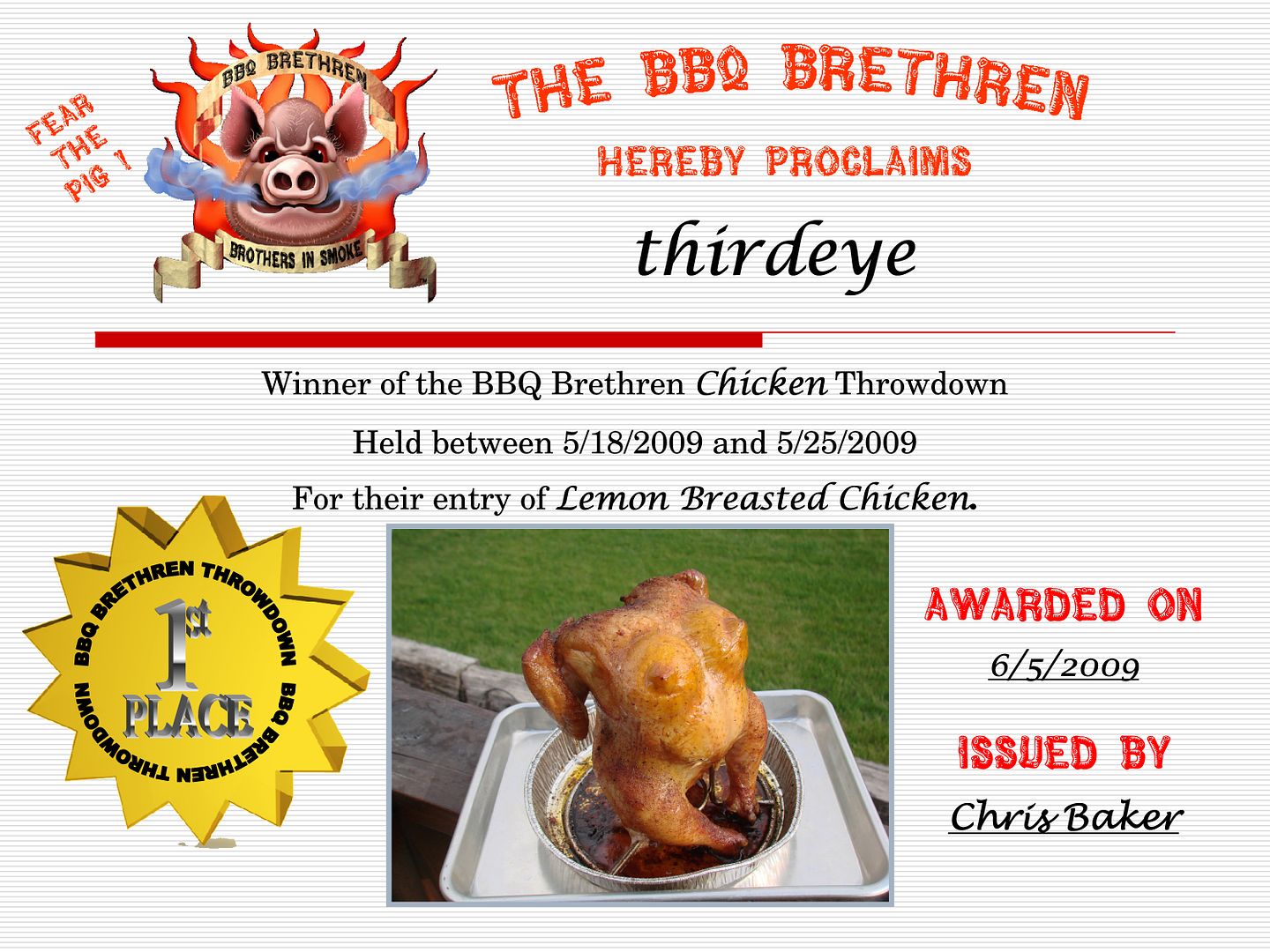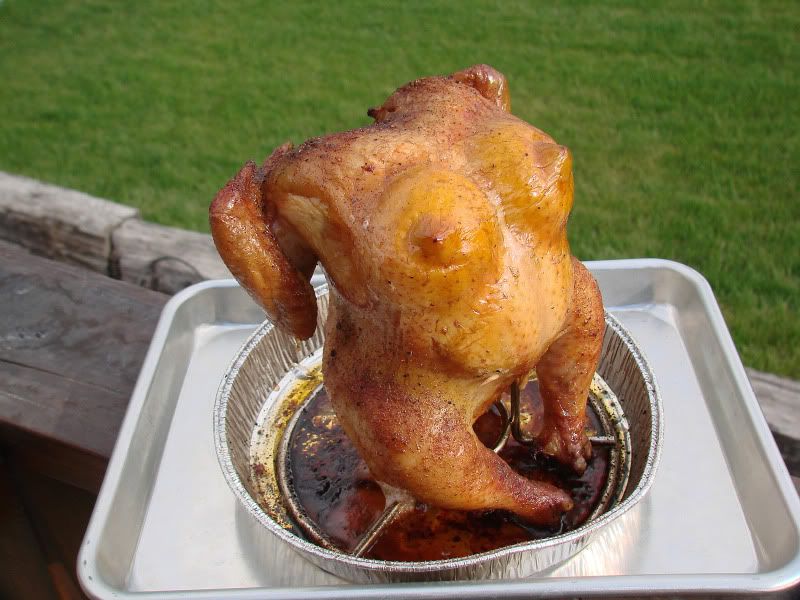
I've never been much of a fan of beer can chicken. This fad caught on really quick, and when I first saw it in a cooking magazine, I gave it a try. It was kind of manly, cooking on a beer can....and the bird did look kind of cute perched on the can. Later on, when I first saw a beer can chicken with boobs, I thought it was a lot cuter, but I still had some problems with the beer can technique.
At first, the idea of liquid in the can keeping the bird moist sounded good, but in reality heating that liquid takes a lot of heat, and it takes a while to get hot, especially when you consider that the cold chicken itself acts as insulation. The first modification I did to the technique was to heat up the liquid before pouring it in the can. This helped a little. But the real problem was in the cook itself. Actually it was the doneness of the breast meat and the dark meat.
I'm really picky with my chicken. I like the internal temperature of white meat no higher than 165°, which means I pull it off the pit about 160°. My dark meat on the other hand, is perfect when it's cooked to 175° or 180°. No matter what I tried I could not get those ranges of doneness on a beer can chicken. I tried several different pit temperatures and tried both indirect and direct methods. The next modification was to abandon the can all together and just use the stand. This worked a little better, but not good enough. The last thing I tried was to invert the bird, yes I opened the neck cavity and cooked it upside down. That didn't do it for me either. So I gave up went back to cooking white and dark halves (cut at the hip joint), quarters, or individual pieces. Then I could pull them off when they were at the perfect doneness.
To solve this same problem when cooking a whole turkey, a famous Egghead, Mad Max Beyond Eggdome and a famous food scientist, Harold McGee, both recommend icing down the turkey breast so it will have a lower temperature when the cook is started. In other words, the dark meat gets a head start, and when it reaches 170°, the breast is only about 160°. This works on chicken as well. Just set the bird, breast down in a tray of crushed ice for an hour.
Now, I generally put herbs, seasonings and lemon slices under the skin of my turkey and chicken breasts anyway, so it was a simple step to adapt the breast icing techniques from above using the end thirds of a lemon. Just freeze the lemon and slip it under the skin about an hour before the cook. Or ice down the breast and use a partially frozen lemon. The one bonus for using the lemon is that as it thaws is does weep lemon juice which flavors the breast. You can also fill lemon cups with garlic butter and freeze them for some self basting action. Other folks have told me they use limes in the same fashion.
The cook is simple enough. Prep the chicken with one of the icing options. Position the lemon inserts under the skin. Season the bird however and with whatever you like. Use a pit temp somewhere between 275° and 325°, and use some kind of a heat shield like a drip pan, pizza stone (preheat it for 20 minutes) or a plate setter. You could opt for a raised direct cook over a smaller bed of coals. Cook until the breast is 160°, remove and tent the bird. Confirm that the dark meat is above 165°, I like to measure that around the leg to thigh joint. And also take note of the juices, they should run clear. At 325°, with an indirect set up my birds take about an hour and 15 minutes. Raised direct is a little shorter. If you are not a skin eater, or have brined the bird specifically for smoking, cook at 250° for two and 1/2 hours or so. The skin will NOT be as crisp, but the meat will be very flavorful.
To insure crisp skin skin, you could ramp up the pit temp halfway through the cook....just watch the color so you don't burn it.
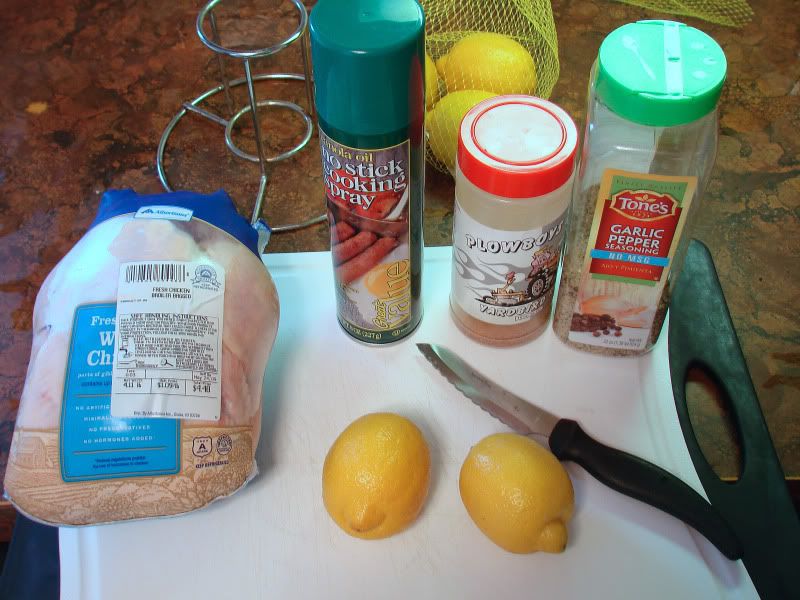

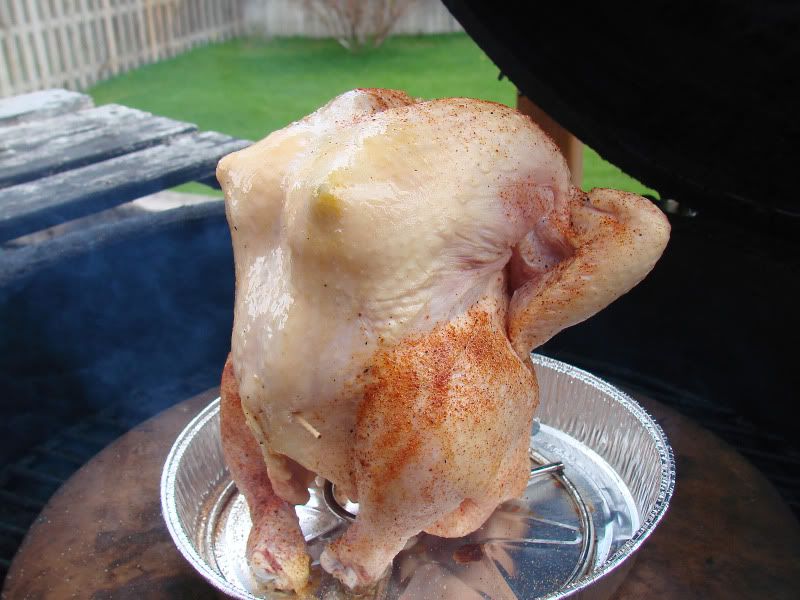
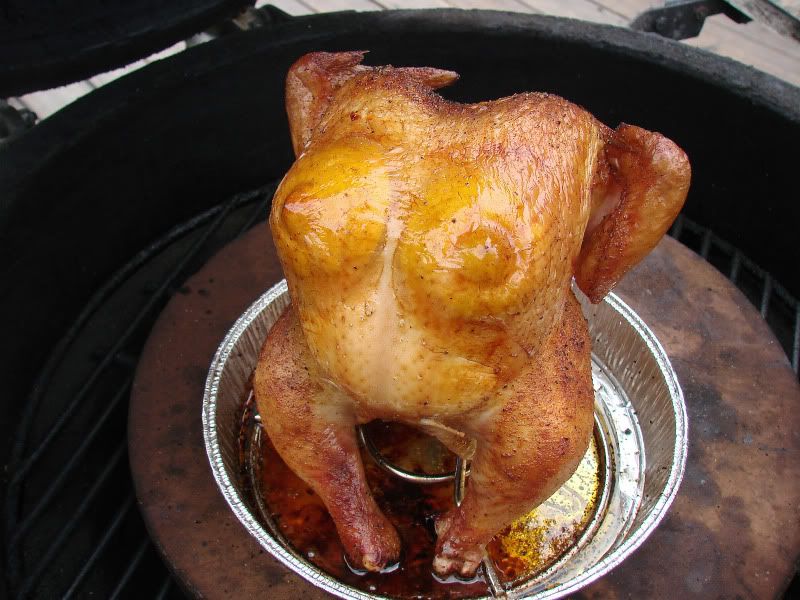
This particular cook was an entry in one of the BBQ Brethren Throwdown contests. I was lucky enough to take first place with it.
